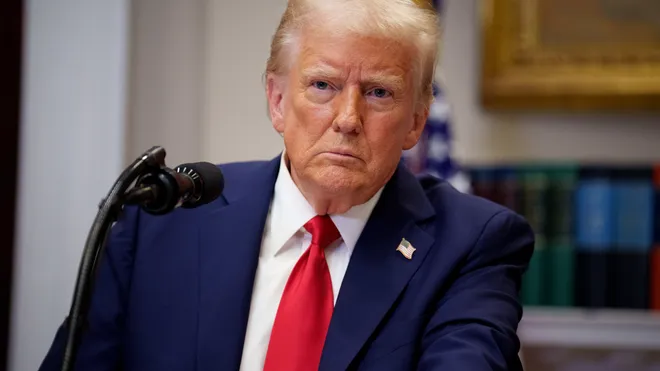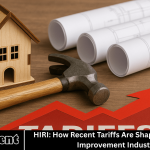The detention of American citizens abroad has become one of the most pressing challenges in international relations. Former U.S. President Donald Trump has issued a new executive order aimed directly at countries accused of wrongfully detaining Americans. This bold measure is intended to hold foreign governments accountable for what the U.S. describes as “hostage diplomacy.” The executive order authorizes sanctions and punitive measures against governments that exploit U.S. citizens for political leverage, while also strengthening interagency coordination to secure the safe return of detainees. Supporters see it as a strong and necessary step, while critics warn it may increase risks for Americans traveling abroad and complicate delicate diplomatic negotiations.
The Growing Problem of Wrongful Detentions
Wrongful detentions are not new, but they have surged in visibility over the past decade. According to the James W. Foley Foundation, dozens of Americans are currently believed to be unjustly detained overseas. Many are held in countries where relations with Washington are tense, including Russia, Iran, China, and Venezuela. These detentions often involve charges of espionage, smuggling, or other alleged crimes that the U.S. government and human rights organizations argue are politically motivated. The case of WNBA player Brittney Griner brought global attention to this issue in 2022, when she was detained in Russia on drug charges before being released in a prisoner swap. Several Americans also remain detained in Iran, accused of espionage or threats to national security, despite ongoing calls for their release. These high-profile incidents have highlighted how ordinary travelers, businesspeople, or even athletes can become pawns in geopolitical disputes.
What Trump’s Executive Order Says
Trump’s executive order authorizes the U.S. government to impose sanctions on countries found guilty of wrongful detentions. These sanctions may include freezing assets, restricting trade agreements, banning visas for government officials, and suspending military or economic cooperation. The order also directs federal agencies to prioritize securing the release of detainees, with the Department of State, the Department of Defense, and intelligence agencies instructed to coordinate more closely in responding to such incidents. Importantly, the order grants the President authority to officially label governments or organizations as “hostile actors” if they engage in wrongful detentions. This designation paves the way for wider sanctions and diplomatic isolation. Supporters of the policy argue that it draws a firm line and warns hostile regimes that the U.S. will no longer tolerate the imprisonment of its citizens for political gain. Critics, however, question whether sanctions will be effective against countries that are already isolated or hostile toward the United States.
Human Stories Behind the Policy
Every wrongful detention is not just a political issue but a deeply personal tragedy. Families are often left in limbo, enduring months or even years without knowing if their loved ones will ever return home. A mother of an American currently detained in Iran told reporters, “Every day feels like torture. We wake up not knowing if today will be the day our son comes home or if he will remain imprisoned for years.” For these families, the announcement of Trump’s executive order offers hope that their voices are being heard. Yet it also raises concerns that sanctions could harden the stance of authoritarian regimes, making them less willing to negotiate. Advocacy groups stress that while symbolic actions are important, the ultimate measure of success is whether detained Americans are brought home safely and swiftly.
International Reactions and Global Impact
The executive order has sparked a wide range of reactions globally. U.S. allies such as Canada and the United Kingdom expressed cautious support, noting that they too have dealt with wrongful detentions of their citizens. Canada, for example, faced years of diplomatic challenges with China after the arrest of two Canadians in retaliation for the detention of Huawei executive Meng Wanzhou. For these allies, Trump’s order could signal the start of a more unified approach to combatting hostage diplomacy. On the other hand, adversaries have strongly criticized the move. Russia’s foreign ministry described it as “a continuation of Washington’s hostile policies,” while Iranian officials rejected the notion that their legal system is politically motivated. For countries already in conflict with the U.S., the order may further strain relations and reduce room for diplomatic compromise.
Historical Precedents of Detentions
Wrongful detentions have been used as a geopolitical tool for decades. During the Cold War, both the United States and the Soviet Union frequently detained each other’s citizens, often using them in prisoner exchanges. The famous case of U-2 pilot Francis Gary Powers in 1960 is one example. Powers was captured by the Soviets and later exchanged for a Soviet spy in a carefully negotiated swap. In more recent decades, wrongful detentions have been linked to conflicts in the Middle East, disputes with North Korea, and tensions in Latin America. Each U.S. administration has adopted different approaches, ranging from quiet diplomacy to public pressure. Trump’s executive order represents a more aggressive institutionalization of punishment for governments that engage in such practices.
Legal and Ethical Questions
The executive order raises important questions about legality and fairness. How does the U.S. determine if a detention is truly wrongful? Host governments often claim that detainees violated their national laws, even when those laws are considered unjust or politically motivated by international observers. Human rights organizations frequently highlight such abuses, but the criteria for officially designating a detention as wrongful remain complex and open to interpretation. There is also the ethical dilemma of reciprocity. If the United States punishes foreign governments for detaining its citizens, could those governments retaliate by targeting more Americans in response? This concern is particularly acute for travelers, journalists, and businesspeople who may be seen as convenient targets.
The Role of Advocacy and Families
Families of detainees have long been at the forefront of pressuring the government for stronger action. Advocacy groups such as Bring Our Families Home and the James W. Foley Foundation have amplified the voices of families, organized rallies, and lobbied policymakers. Many observers believe Trump’s executive order was influenced by such advocacy, as families demanded that the U.S. show greater resolve. These groups welcomed the move but also urged caution, emphasizing that real success will depend on consistent enforcement and bipartisan support. They argue that wrongful detentions should not become a partisan issue but instead remain a national priority regardless of who occupies the White House.
Experts Weigh In
Experts are divided over the long-term impact of the executive order. Michael Green, a professor of international relations, said, “The order is an important step in asserting that hostage diplomacy has consequences. But without international coordination, rogue regimes may simply ignore U.S. sanctions.” Former diplomat Anne Patterson, however, warned that the order might reduce flexibility in delicate negotiations. “When you commit yourself to punitive measures, you risk losing the ability to strike creative deals that bring detainees home,” she explained. These differing perspectives highlight the balancing act between strength and diplomacy that every administration must navigate.
Economic and Geopolitical Implications
Sanctions imposed under this order could have broad ripple effects across global markets. If energy-rich countries like Iran or Russia face additional restrictions, oil and gas prices could rise worldwide. Similarly, sanctions against nations involved in global supply chains could worsen disruptions already affecting industries from technology to manufacturing. Geopolitically, nations that feel targeted may seek closer ties with one another, creating alternative alliances that challenge U.S. influence. However, for U.S. allies who also face wrongful detentions of their citizens, this policy could encourage collective action and a more unified stance against authoritarian regimes.
Impact on American Travelers
For ordinary Americans, the executive order is a reminder of the risks of international travel, particularly in regions with strained relations with the United States. The U.S. State Department regularly issues travel advisories, and this policy underscores the seriousness of those warnings. Travel experts recommend registering with the Smart Traveler Enrollment Program (STEP) before traveling abroad so the government can assist in emergencies. Families of former detainees stress that prevention is crucial, as securing release once detained is often a slow and agonizing process.
FAQs
What does Trump’s executive order on wrongful detentions do?
The order authorizes sanctions and penalties against countries that wrongfully detain Americans, including freezing assets, restricting trade, and banning visas for government officials. It also directs federal agencies to prioritize detainee cases.
Why did Trump issue this executive order?
The order was issued in response to a growing number of wrongful detentions worldwide and increasing pressure from advocacy groups and families demanding stronger action against hostage diplomacy.
Which countries are most likely to be affected?
Countries such as Iran, Russia, China, North Korea, and Venezuela have previously been accused of detaining Americans under questionable charges and are most likely to face sanctions under this order.
Could this policy make Americans abroad more vulnerable?
Some experts caution that the order could increase risks for Americans traveling in hostile countries, as regimes may retaliate by targeting more U.S. citizens.
How is this different from past U.S. policies?
Previous administrations relied more on case-by-case diplomacy and negotiations. Trump’s order takes a more aggressive approach by institutionalizing punitive measures against offending states.
Conclusion
Trump’s executive order targeting countries detaining Americans underscores the ongoing challenge of balancing diplomacy, security, and human rights. It sends a clear message that wrongful detentions will not be tolerated, but its real-world effectiveness will depend on consistent enforcement and international cooperation. While it offers hope to families of detainees, it also raises concerns about potential retaliation and the risks faced by Americans abroad. The policy highlights a fundamental question: should the U.S. prioritize punishment to deter wrongful detentions or pursue diplomacy to secure swift releases? Ultimately, the success of the order will be judged not by its rhetoric but by whether it helps bring American citizens safely back home.








